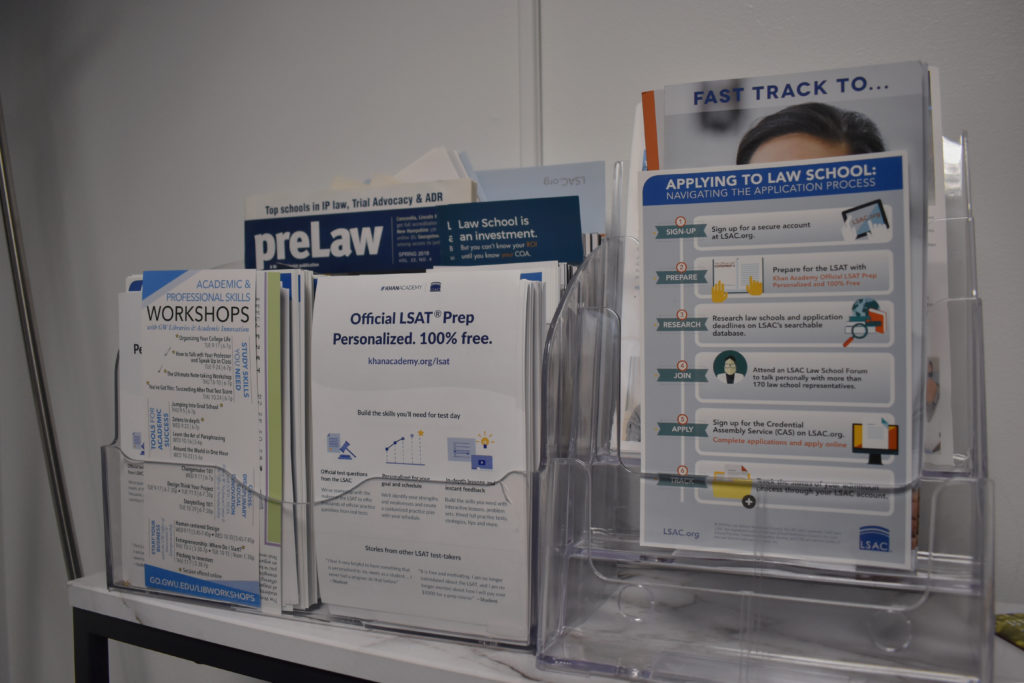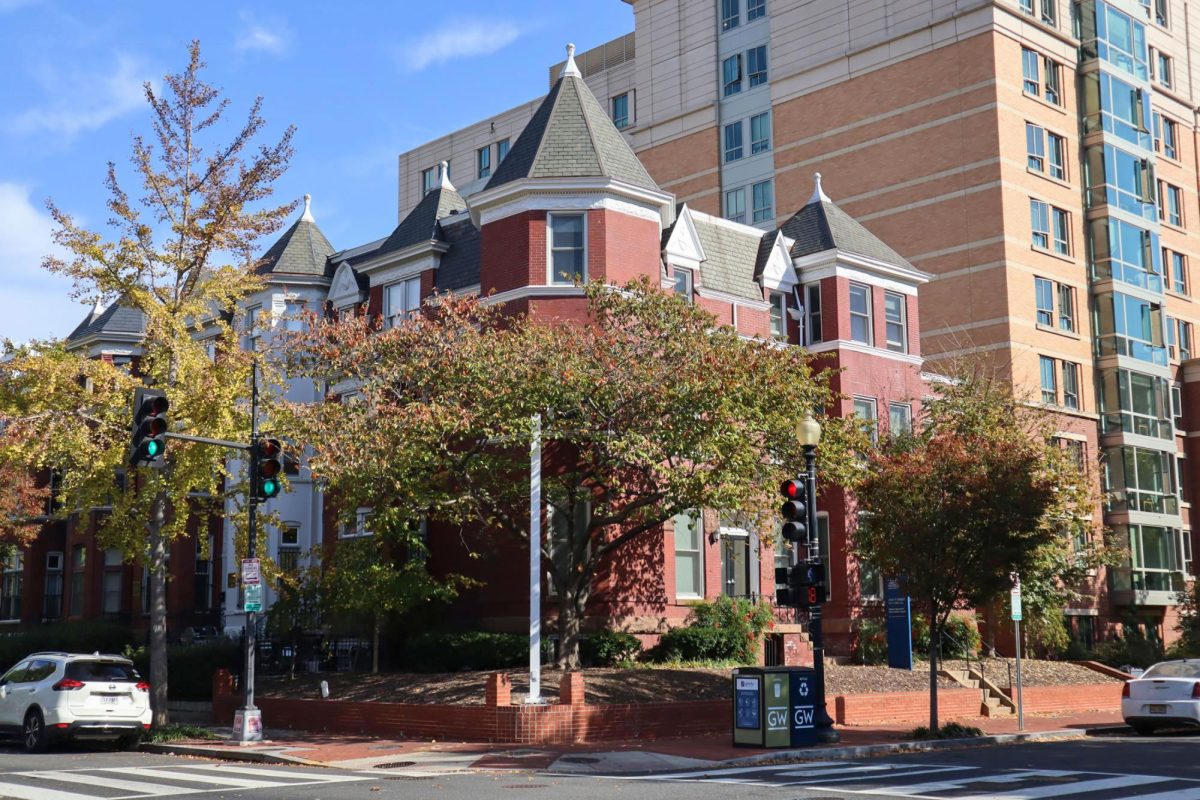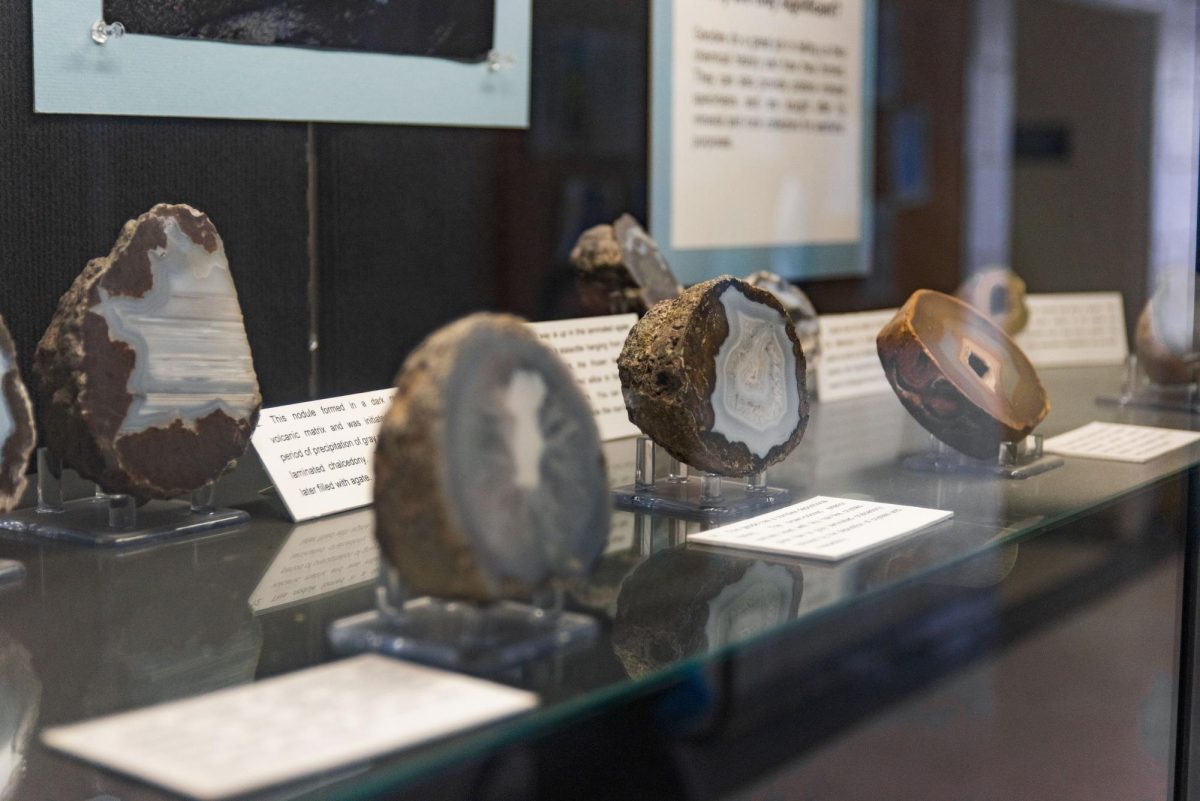Despite the resources GW continues to offer pre-law students to navigate law school applications, students say the resources are inadequate without an adviser dedicated to assisting them.
Amid the financial effects of the COVID-19 pandemic, Deborah Baker, the senior academic adviser for pre-law students, was let go as part of a slew of layoffs. Officials have proposed resources – like advising appointments with a Columbian College of Arts and Sciences adviser with a Juris Doctorate and application assistance from GW Writing Center consultants who are “familiar” with the law school application process – but students said they are being forced to rely on multiple sources of assistance instead of having a “one-on-one” experience with Baker.
A student launched a petition, which received more than 500 signatures, in September calling for officials to reinstate Baker.
“The resources are not really an adequate replacement for an actual individual who can sit down with students and guide them one-on-one.”
Gilda Mossadegh, the director of undergraduate and pre-professional academic advising, said all the resources officials sent out resources in an email to pre-law students earlier this month have previously existed.
Advisers for the Elliott School of International Affairs will provide students and alumni of the school with a “list of resources and contacts” that will “guide” them through the law school application process, according to the email. GW Law officials will also hold live sessions with advice on the application process to support pre-law students, and officials from GW Law Student Enrichment Services are working to create a mentorship program between pre-law students and current students and alumni of the law school, the email states.
Mossadegh said the only change to the resources available for students is that officials from the Elliott School will also provide pre-law advising for its own students and alumni.
“Pre-law students and alumni have responded positively to the comprehensive range of resources that are available to them from the exploration stage to the application and acceptance stage of their law school admissions journey,” she said in an email.
Officials will also allow about 50 pre-law sophomores and juniors to have “early access” to Career Connect, which will allow the students to speak with alumni who are working in the legal field and can provide career guidance, the email sent to students states.
Provost Brian Blake said in September that his office ran a study during the summer to determine the efficiency of several academic units at GW, including its advising structure. He said he made the “hard decision” to decrease the ratio of undergraduate students per adviser to 220-to-1, which he said is still better than the national average but “more in line with what we can afford.”
Junior Yasmin Maleki, a religious studies major and the public relations director for the Pre-Law Students Association, said she relied on GW’s pre-law adviser as a freshman to help decide which major to declare as she seeks law school after graduation.
Maleki said Baker could look at a student’s application “as a whole,” whereas the other pre-law resources available to students involve multiple people that students have to rely on.
She said advisers with a J.D. may not be as “trained” and “knowledgeable” about the law school application process as a pre-law adviser. She said she feels “lost and nervous” about the application process going forward without a specific pre-law adviser to rely on.
“I definitely wish there was someone I could talk to,” she said. “Nobody really knows what they’re doing.”
Sophomore Karina Ochoa Berkley, a political science and philosophy major who started the petition calling for officials to reinstate Baker, said she has “yet to be convinced” that she should have confidence in GW’s pre-law advising resources.
“As opposed to making a functional replacement for Debbie, they’re just scrapping all of these pre-existing services that they already had and trying to push it as this new pre-law organization,” Berkley said.
She said officials seem to be willing to compromise the quality of their pre-law advising resources to make budget cuts, which she finds “concerning” when many students at GW are interested in going to law school and rely on these resources.
Puja Samant, a sophomore majoring in economics and political science and the events director for PLSA, said Baker was an “incredible” resource and it is “essential” for officials to provide guidance for pre-law students, especially because GW in particular “attracts so many.”
“The resources are not really an adequate replacement for an actual individual who can sit down with students and guide them one-on-one,” she said.
Samant said she plans to take advantage of the resources that officials have developed for students but said students still need a pre-law adviser who can help students “one-on-one” with their unique needs.
She said even though there are advisers at GW who have J.D.s, they won’t be as beneficial as Baker because pre-law advising isn’t their “primary” responsibility.
“Having a pre-law adviser who’s dedicated to this role and dedicated to keeping active pre-law listservs and actively working with students who want guidance I think is really useful,” Samant said.








